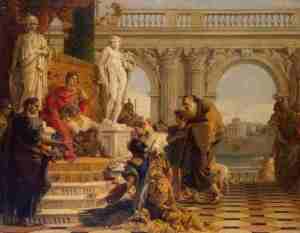By Roy Peachey, Director of Learning
In 2010 a broadsheet journalist suggested that Liberal Arts degrees could be “the next big thing” in British universities and there are signs that he may have been right.
The Benedictus Trust, for example, is currently in the process of setting up a Catholic Liberal Arts college which will offer foundation and undergraduate degree courses. It’s not alone in this: several other well-known institutions are also moving into the field. The University of Exeter, for instance, is launching what it calls an “innovative, interdisciplinary and challenging” Liberal Arts degree for September 2013, as are King’s College, London, the University of Birmingham and University College, London (though UCL has now chosen to call its degree an Arts and Sciences BASc).
If some of the big players in British higher education are moving into what is a well-established field in the USA and elsewhere, the obvious question to ask is: what is the appeal?
Mark Roche, Professor of German Language and Literature and Concurrent Professor of Philosophy at the University of Notre Dame, has recently written a book (called Why Choose the Liberal Arts?) to answer that question. He develops three overlapping arguments for a liberal arts education: “first, its intrinsic value, or the distinction of learning for its own sake, the sheer joy associated with exploring the life of the mind and asking the great questions that give meaning to life; second, the cultivation of those intellectual virtues that are requisite for success beyond the academy, a liberal arts education as preparation for a career; and third, character formation and the development of a sense of vocation, the connection to a higher purpose or calling.” Put that way, we can see the great appeal the Liberal Arts have for us at The Cedars.
Far from being “the next big thing”, the liberal arts have, of course, been around for a very long time. As Nigel Tubbs, Professor of Philosophical and Educational Thought (and Programme Leader for Modern Liberal Arts) at the University of Winchester, points out to prospective students, it is single-subject degrees that are “the new kids on the block”. As he puts it with a certain rhetorical flourish, “We were here in 400BC.”
The liberal arts may have been around in 400BC but they aren’t stuck in the past. In fact they have never remained static. By late Antiquity they had been formalised as the Trivium (logic, grammar and rhetoric) and the Quadrivium (arithmetic, geometry, astronomy, and music) but the tradition was further developed by a 6th Century monk called Cassiodorus who, following many of St Augustine’s ideas, brought the liberal arts firmly into the world of Christian education.
As Professor Paul Freedman of Yale University puts it: “At his monastery of Vivarium in southern Italy, Cassiodorus developed a notion of the liberal arts as an aid to religious truth. The liberal arts is not his invention, but the notion of the liberal arts culminating in a program that has a purpose in which classical culture is fused with Christian culture is his doing.” Cassiodorus’s ideas were taken up across Europe and helped to create the pan-European (and, ultimately, international) system that survived into the 20th Century.
Since then there have been many changes, some of which have been necessary responses to the circumstances of the modern world (including, for example, the development of science and computing), and some of which have been less welcome responses to the spread of secularism. We need to be clear, therefore, about what we mean when we talk about a liberal arts approach to education. The key principles in our view are:
1. The interconnectedness of knowledge.
At The Cedars we draw out links between subjects so that our pupils do not compartmentalise what they learn.
2. Ideas develop within cultures and so both ideas and cultures need to be studied.
As Christopher Dawson has argued, there should be more to a Liberal Arts education than simply a Great Books programme (but maybe I’ll deal with that in another blog post). A key component of any Liberal Arts curriculum should be the study of the cultures in which those great books were written.
3. Respect for the past.
As one respected academic wrote recently: “we are experiencing more history and more historical change than almost any generation before us, and yet we take virtually no interest in it.” At The Cedars we impart a respect for learning, wherever and whenever it might come from.
4. Truth, Goodness and Beauty are at the heart of all we do.
5. Grammar, Logic and Rhetoric are still worth teaching.
We hear a great deal about problems in British education but, it seems to us, there are some tremendously liberating ideas out there too. Maybe, just maybe, a Liberal Arts education could be the “next big thing” not only in British universities but in its schools too.

